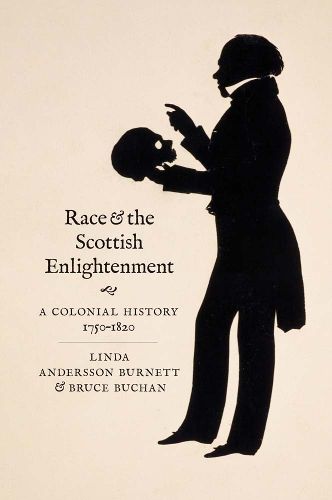Readings Newsletter
Become a Readings Member to make your shopping experience even easier.
Sign in or sign up for free!
You’re not far away from qualifying for FREE standard shipping within Australia
You’ve qualified for FREE standard shipping within Australia
The cart is loading…






How colonialism shaped the Scottish Enlightenment's conception of race and humanity
In the decades after 1750, an increasing number of former medical students from the University of Edinburgh construed humanity as a subject of both intellectual curiosity and colonial interest. They drew on a shared educational background, blending medicine with natural history and moral philosophy, in a range of encounters with non-European and Indigenous peoples across the globe whom they began to classify as races. Focusing on a surprising number of these understudied students, this book reveals the gradual predominance of race in Scottish Enlightenment thought.
Teaching provided a toolbox of concepts and theories for students who went on to careers as military and naval surgeons, colonial administrators, and natural historians. While some, such as Mungo Park-who traveled in Africa-are well known, many others such as the long-term residents in the Russian Empire, Matthew Guthrie and his wife, Maria Guthrie, or the Caribbean botanist Alexander Anderson are less remembered. Among this group were those such as the Pacific traveler Archibald Menzies and the circumnavigator of Australia, Robert Brown, who are known primarily as botanists rather than as ethnographers. Together they formed a global network of colonial travelers and natural historians sharing a common educational background and a growing interest in race.
$9.00 standard shipping within Australia
FREE standard shipping within Australia for orders over $100.00
Express & International shipping calculated at checkout
How colonialism shaped the Scottish Enlightenment's conception of race and humanity
In the decades after 1750, an increasing number of former medical students from the University of Edinburgh construed humanity as a subject of both intellectual curiosity and colonial interest. They drew on a shared educational background, blending medicine with natural history and moral philosophy, in a range of encounters with non-European and Indigenous peoples across the globe whom they began to classify as races. Focusing on a surprising number of these understudied students, this book reveals the gradual predominance of race in Scottish Enlightenment thought.
Teaching provided a toolbox of concepts and theories for students who went on to careers as military and naval surgeons, colonial administrators, and natural historians. While some, such as Mungo Park-who traveled in Africa-are well known, many others such as the long-term residents in the Russian Empire, Matthew Guthrie and his wife, Maria Guthrie, or the Caribbean botanist Alexander Anderson are less remembered. Among this group were those such as the Pacific traveler Archibald Menzies and the circumnavigator of Australia, Robert Brown, who are known primarily as botanists rather than as ethnographers. Together they formed a global network of colonial travelers and natural historians sharing a common educational background and a growing interest in race.